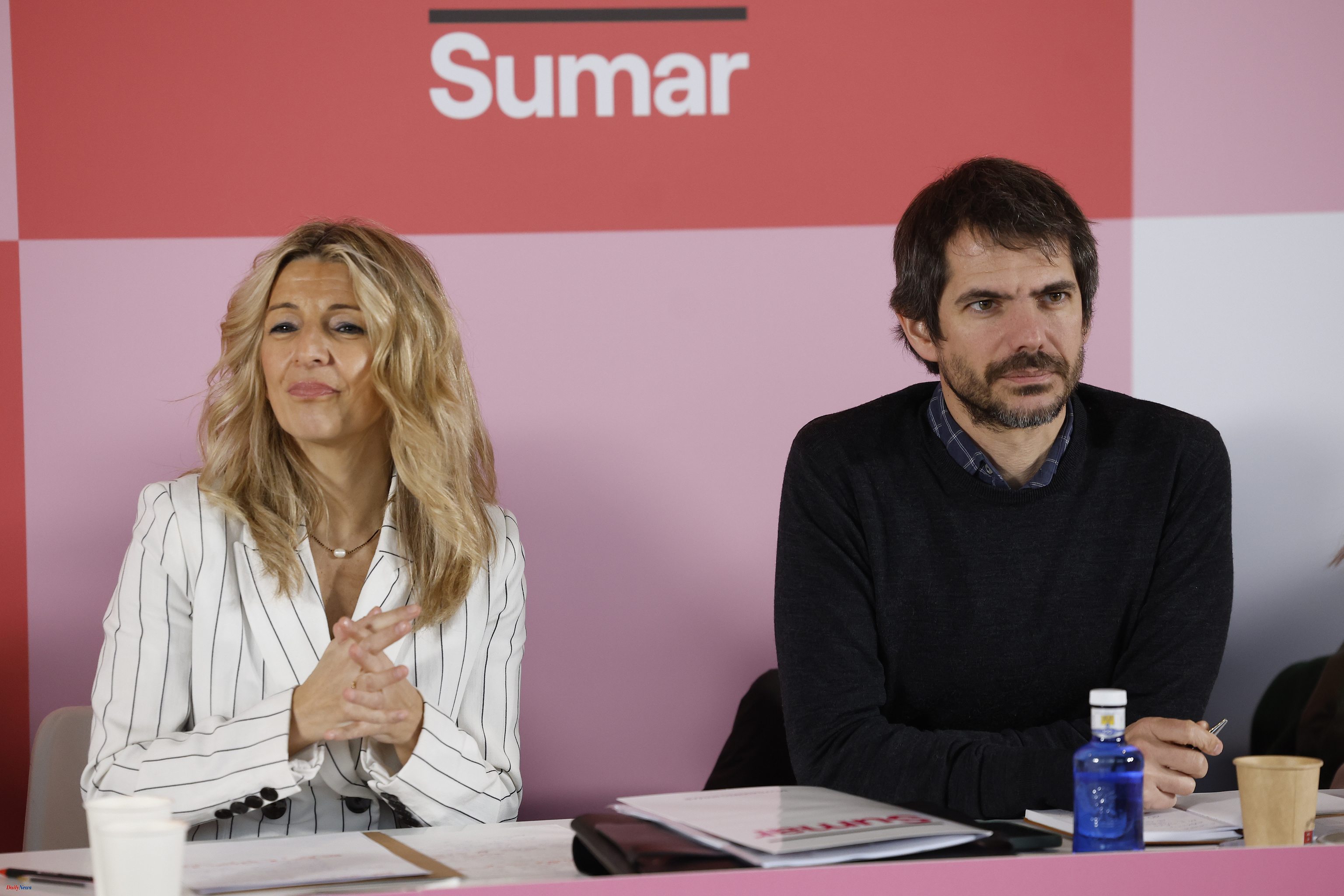Yolanda Díaz has announced that the assembly for the official foundation of Sumar will be held on March 23. It is the leap that will convert the electoral coalition of the last general elections into a Broad Front composed of more than a dozen parties and which will then be provided with management bodies and structures for its consolidation and operation in the different areas of the policy.
This founding assembly is highly anticipated by the different forces that make up Sumar, such as Izquierda Unida, Más Madrid, En Comú Podem, Compromís, Chunta Aragonesista, Equo or Drago Canarias, because until now the decision-making in the alliance has given rise to tensions internal. It was in fact the excuse that Podemos used to leave the parliamentary group at the beginning of December and set out on its own.
Díaz has announced that on March 23, Sumar "was born and becomes a formation that will continue to change Spain" and that its objective is to "weave a country in favor" by doing "useful politics" so that life "hurts less." . A force, he has stressed, that aims to give "security" to the people.
To achieve this and continue joining forces with different parties, he has sent a message to the parties that are embarking on the Sumar project: "Above our pasts, let us add our futures." Furthermore, he has claimed the need for Sumar to have "deep roots" to "change people's lives" and "wings" to build a "better" policy.
The second vice president of the Government announced the date of the assembly in an event in Madrid promoted with the slogan "Let's go to more", in which all the ministers of the fuchsia alliance participated: the head of Culture and spokesperson for Sumar, Ernest Urtasun (common); that of Health, Mónica García (Más Madrid); that of Social Rights, Pablo Bustinduy (Sumar); and that of Youth and Children, Sira Rego (IU).
With this powerful staging, Díaz has presented to society the promoter group that will pilot the celebration of this congress and that joins the leadership of the provisional leadership that has been operating for some time and in which, in addition to the five ministers, figures such as Marta Lois, Íñigo Errejón, Josep Vendrell, Enrique Santiago, Florent Marcellesi or Elizabeth Duval.
The promoter group is made up of a hundred people. It highlights the spokesperson for Más Madrid in the capital's City Council, Rita Maestre; the former Minister of Universities Joan Subirats; the spokesperson for the commons in Congress, Aina Vidal; the general secretary of the Sumar parliamentary group, Txema Guijarro; the economist, leader of Barcelona en Comù and husband of Ada Colau, Adrià Alemany, or philosophers such as José Luis Villacañas and César Rendueles.
There are also people who until not so long ago were in Podemos, such as Jesús Santos, former purple coordinator of the Community of Madrid, or Javier Cañadas, former Madrid leader and regional deputy. There is also Guillermo Nagore, who is Begoña Alfaro's cabinet director in the Vice Presidency of Navarra, where she is also coordinator of Podemos.
There are also deputies Rafael Cofiño and Verónica Martínez; the spokespersons for the commons, David Cid and Joan Mena; Secretary of State Rosa Martínez, former councilor Guillermo Zapata; the former mayor of Rivas Pedro del Cura; IU leader Amanda Meyer; the Andalusian deputy Esperanza Gómez; the leader of Greens Equo Mar González; or the writers Remedios Zafra and Violeta Serrano.
In his demand for a "useful policy", Díaz has pointed out that this week Congress has seen "the policy of no", which is about "governing against the people". The second vice president has focused these criticisms in a context of challenging the behavior of PP and Vox and has avoided mentioning Podemos, which also voted against, to the point that her votes were decisive.
In any case, he has left the message that "those from the no have prioritized interests unrelated to people's lives" and has stressed that the unemployment benefit, whose reform is what the rejected decree contained, is so important because it is the subsidy "for those who have nothing." He has finished by conspiring his people to bring about this reform with a "we are going to win."
On the other hand, Díaz has stressed that he will fight internally in the Government to support South Africa in its complaint against Israel in the International Court of Justice. Well, it is urgent to "end the genocide" of the Palestinians in Gaza. Listening at that event was the South African ambassador to Spain, Sankie Mthembi-Mahanyele, who received a warm ovation from the hundreds of attendees as a sign of support.
"The Government of Spain has to follow in your footsteps and at Sumar we are going to do our best to make it happen," Díaz remarked, "we are going to fight until we achieve it."












